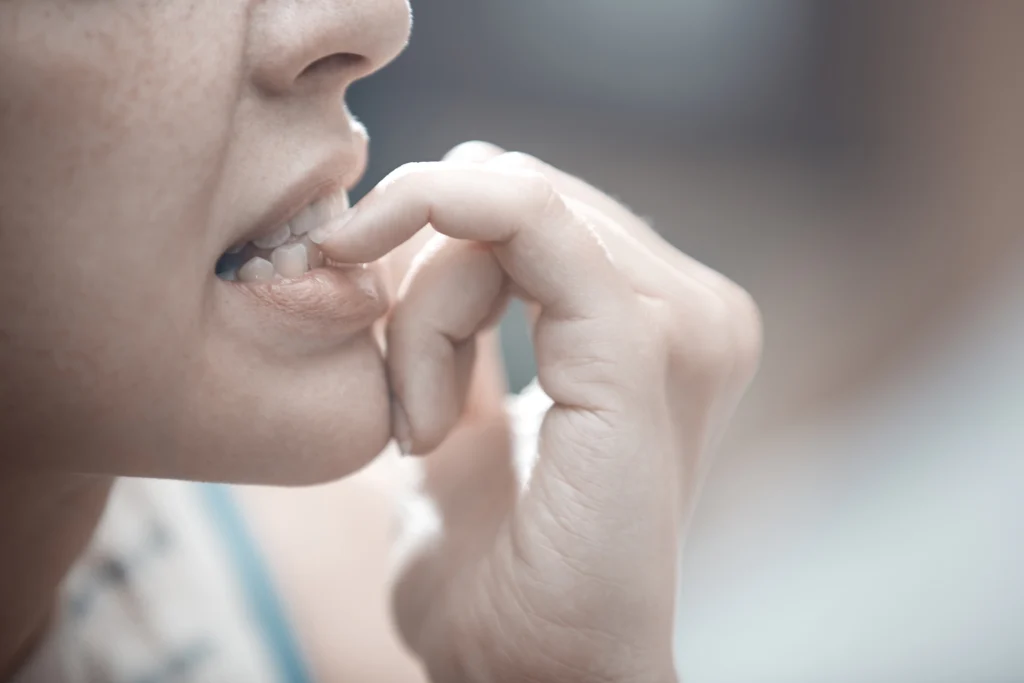What Is Generalized Anxiety Disorder?
Generalized Anxiety Disorder (GAD) is one of the most common anxiety disorders, characterized by excessive worry about various aspects of life. GAD can significantly interfere with daily activities and personal relationships, often causing considerable distress. At Bespoke Treatment, we offer personalized generalized anxiety disorder treatments for individuals struggling with GAD. Our treatment options include ketamine for anxiety, TMS, TMS for anxiety, neurofeedback, and other therapeutic methods.
If you find yourself worrying excessively, even without a clear reason, you might be experiencing Generalized Anxiety Disorder (GAD). GAD is characterized by persistent and uncontrollable worry. Healthcare professionals typically diagnose GAD when this anxiety persists most days for at least six months. GAD usually develops slowly, often starting in childhood or adolescence, although it can also begin in adulthood. It’s more common in females and often has a genetic component. People with GAD tend to experience other mental health issues, such as depression.
What Causes GAD?
Generalized Anxiety Disorder (GAD) can develop when internal stressors are not managed effectively. However, it’s not entirely clear why some individuals develop GAD while others do not. Experts suggest that areas of the brain responsible for regulating fear and anxiety may be involved.
Sometimes, symptoms of GAD can arise as a side effect of medication or substance abuse. GAD can also be associated with health conditions that cause hormonal imbalances, such as hyperthyroidism, which can intensify the body’s stress response. Environmental stressors, family issues, chronic illness, and acute illness can also trigger GAD.
What Are the Symptoms of Generalized Anxiety Disorder?
Individuals with GAD typically:
- Worry excessively about everyday matters
- Struggle to control feelings of anxiety or fear
- Experience discomfort and difficulty breathing
- Have trouble concentrating
- Are easily startled
- Have difficulty falling or staying asleep
- Experience fatigue or constant tiredness
- Have headaches, muscle aches, abdominal pain, or unexplained physical discomfort
- Experience shaking or trembling
- Feel constantly on edge or irritable
- Sweat profusely, feel lightheaded, or experience shortness of breath
- May frequently need to use the bathroom
Children and teenagers with GAD often worry excessively about:
- Their performance in school or other sports
- Disasters, such as earthquakes or war
- The health of family members
Adults with Generalized Anxiety Disorder (GAD) typically experience heightened anxiety about everyday situations. Similarly, children and adults with GAD may also experience physical symptoms such as pain, fatigue, or shortness of breath, which can make it challenging to work and interfere with daily life.

These symptoms can vary over time and often worsen during periods of stress, such as physical illness, school exams, family conflict, or relationship issues.
How Is Generalized Anxiety Disorder Treated?
Psychotherapy
If you are experiencing symptoms of GAD, it’s essential to seek professional help. Once you provide your information, the healthcare provider may conduct a physical examination to ensure that your symptoms are not caused by unrelated physical issues. You may then be referred to a mental health professional such as a psychiatrist, psychologist, or clinical social worker.
The first step towards effective treatment usually involves an assessment, often conducted by a psychiatrist. GAD is typically treated with psychotherapy (sometimes referred to as “talk therapy”), medications, or a combination of both. Be sure to discuss with your healthcare provider the best treatment approach for Generalized Anxiety Disorder.
Cognitive Behavioral Therapy (CBT), a well-researched psychotherapy, is commonly used to treat generalized anxiety disorder. CBT helps individuals learn how to modify their thoughts, behaviors, and reactions to various situations, ultimately reducing feelings of anxiety and worry.

Medication
Healthcare providers can prescribe medication to treat GAD, and several types of drugs can be effective, including:
- Antidepressants, such as selective serotonin reuptake inhibitors (SSRIs) and serotonin-norepinephrine reuptake inhibitors (SNRIs).
- Anti-anxiety drugs, such as benzodiazepines
It may take a few weeks for these medications to become fully effective. They can cause side effects such as headaches, nausea, or difficulty sleeping. However, these side effects are usually mild for most people, especially if the medication is started at a low dose and gradually increased over time. If you experience any side effects, it’s essential to discuss them with your healthcare provider.
Benzodiazepines, which might be anti-anxiety medicinal drugs, can also be used to manipulate excessive kinds of GAD. Those capsules can be very effective at lowering anxiety assault fast. Still, a few human beings increase tolerance for them, need better doses to have the same effect, and a few even grow to be depending on them.

Support Groups
Many individuals with anxiety disorders find support and encouragement by joining self-help groups, either in person or online, where they can share their experiences and achievements with others. However, it’s important to use any advice from support group members cautiously and not as a replacement for medical guidance from a healthcare professional.
Healthy Habits
Adopting a healthy lifestyle can also help prevent anxiety, although it is not a substitute for treatment. Researchers have found that implementing certain healthy habits into your daily routine, such as reducing caffeine intake and ensuring an adequate amount of sleep, combined with appropriate care, psychotherapy, and medication, can reduce anxiety symptoms.
Stress management techniques, exercise, mindfulness, and meditation have been shown to reduce anxiety symptoms and improve the effectiveness of psychotherapy. Speak to a mental healthcare provider to learn how these strategies can complement your treatment.
(833) 646-0763
Rediscover Peace With Our Anxiety Treatment
If you struggle with Generalized Anxiety Disorder and are looking for treatment options in Los Angeles and Santa Monica, Bespoke Treatment is the right place for you. Contact our mental health clinic and rediscover peace.
Get Started












